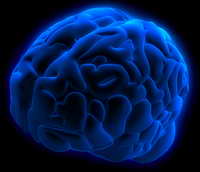Artificial Intelligence
Artificial Intelligence
Nightmare, Myth or RealityThere are scientists and college professors that believe that everything we know about computers will change in the next decade and that by 2015 an individual can have an intelligent conversation with the average computer. As in science fiction movies, some individuals are predicting that the future systems will ask you what help you need and automatically call in the appropriate resources to aid you in solving your problem. |

|
The ultimate test of artificial intelligence
was developed by Alan Turing, a British
mathematician famous for the invention
of the theoretical Turing machine and
for the deciphering of the German codes
during World War II. The Turig's test
is basically a very simple test. You place
something (or someone) behind a curtain
and then have it speak with you. If you
cannot determine whether this entity is
an actual human or a computer, it passes
the test and can be considered a true
form of Artificial Intelligence. So far,
there has been nothing created that has
been able pass this test. This definition
also suggests that an Intellect is a person
with knowledge that has been gained from
living and experiencing real life. So
ultimately the definition of artificial
intelligence is a device that can communicate
with us jus as another human being can
and has the ability to learn and adapt
through experience. Scary if you think
about it. If these machines with their
extensive computing ability can learn
from their experiences and then evolve
to the next level, would they determine
that human life is a detriment to the
earth and to their existence?
So where are we with the development of
Artificial Intelligence? Although no one
has yet been able to capture all of the
traits of human intelligence and apply
it to an artificial entity, there are
countless projects happening throughout
the world in the artificial intelligence
arena. With the numerous advancements
in robotics, there is now an actual body
to go along with an artificial mind. NASA
is developing a humanoid robot that can
assist humans in their space exploration
efforts. The military has been deep into
the development of robotic soldiers, and
robotic vehicles can maneuver around obstacle
courses to complete hazardous missions.
People have
broken artificial intelligence down into
numerous categories and subcategories.
But a good foundation for looking at artificial
intelligence is breaking it into either
strong or weak ai.
Strong artificial intelligence is the
area of research that deals with computer
based artificial intelligence that can
actually reason and solve problems. Strong
AI is further broken down into these 2 sub-cagetories:
* Human-like
AI, in which the computer program thinks
and reasons much like a human mind.
* Non-human-like
AI, in which the computer program develops
a totally non-human sentience, and a non-human way of thinking and reasoning.
Weak artificial intelligence deals with
the creation of some form of computer-based
artificial intelligence that cannot truly
reason and solve problems; such a machine
would, in some ways, act as if it were
intelligent, but it would not possess
true intelligence or sentience.
Looking deeper into AI, it has a number
of implications for the advancement of
the human race and there are three primary
schools of thought with regard to the
future of AI
^ Top ^


